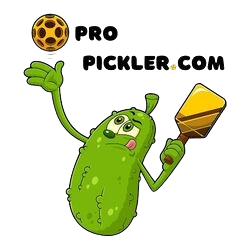Playing pickleball, especially during recreational play, is all about enjoyment, camaraderie, and sometimes, the challenge of partnering with someone who might not be performing at their best. Here’s how to handle such situations with grace, patience, and strategic thinking, while maintaining a positive atmosphere on the court.
Embracing the Challenges of Recreational Play
Recreational play brings together a diverse mix of skill levels, which is part of its charm. When paired with someone struggling on the court, it’s essential to remember that pickleball is as much about social interaction as it is about the sport. Encouragement and positivity are key.
As one player on Reddit shares, “I tend to give encouragement initially, but if mistakes continue, I just stay quiet and let the match play out,” highlighting the importance of not overdoing it.
Approaching the Situation with Kindness
When your partner isn’t playing well, approach the situation with kindness. One player advises, “Do nothing but finish the game. Play and act like it’s no big deal.” This approach keeps the atmosphere light and respects your partner’s efforts, regardless of the outcome.
Strategies for Playing with a Struggling Partner
Playing with a partner who’s not at their best is an opportunity to practice patience and empathy. Here are some effective strategies to handle the situation:
1. Adjust Your Strategy
If your partner is struggling, consider adjusting your game plan. Play more defensively if they’re missing offensive shots, or cover more of the court if they’re not as quick on their feet.
2. Communicate Effectively
Clear, positive communication is crucial. Before the game, ask your partner about their strengths and preferred playing style. During the game, keep communication open and encouraging. Instead of pointing out mistakes, focus on future opportunities. For example, suggest, “Let’s try to keep it in their backhand corner next time.”
3. Focus on Your Own Improvement
Playing with a struggling partner is an excellent opportunity to focus on your own game. Work on your shots or play more strategically. Every game, regardless of the outcome, is a chance to improve.
4. Celebrate Small Wins
Acknowledge and celebrate small victories. Did your partner make a good shot? Celebrate it. Did you both manage a longer rally? Acknowledge it. Focusing on small wins can boost morale and improve your partner’s performance.
5. Be Patient and Understanding
Everyone has off days. Remember that your partner is likely aware of their struggles and might already feel self-conscious or frustrated. Being patient and understanding, rather than critical, can help them bounce back more quickly.
Motivating Your Partner to Play Better
Encouragement and positive communication are key. One player reflects, “I love making the game fun for everyone,” emphasizing the value of positive reinforcement. Simple phrases like “nice try” or “keep swinging” can go a long way. Also, compliment good shots on both sides of the net to maintain a positive environment.
Summary: Keep the Atmosphere Light and Encouraging
Remember, not everyone appreciates unsolicited coaching. Simple encouragements like “nice try” can make a big difference. If the game doesn’t go as hoped, maintaining a friendly demeanor off the court is crucial.
As one player puts it, “It’s the best feeling to see the smile on a lovely 90-year-old’s face who hasn’t won in a while when we win!” This captures the essence of what makes recreational play special.
In the end, open play pickleball is inherently unpredictable. Some days you’ll have great partners, and other days will be more challenging. Embrace the experience, support your partner, and look forward to the next game or session.



